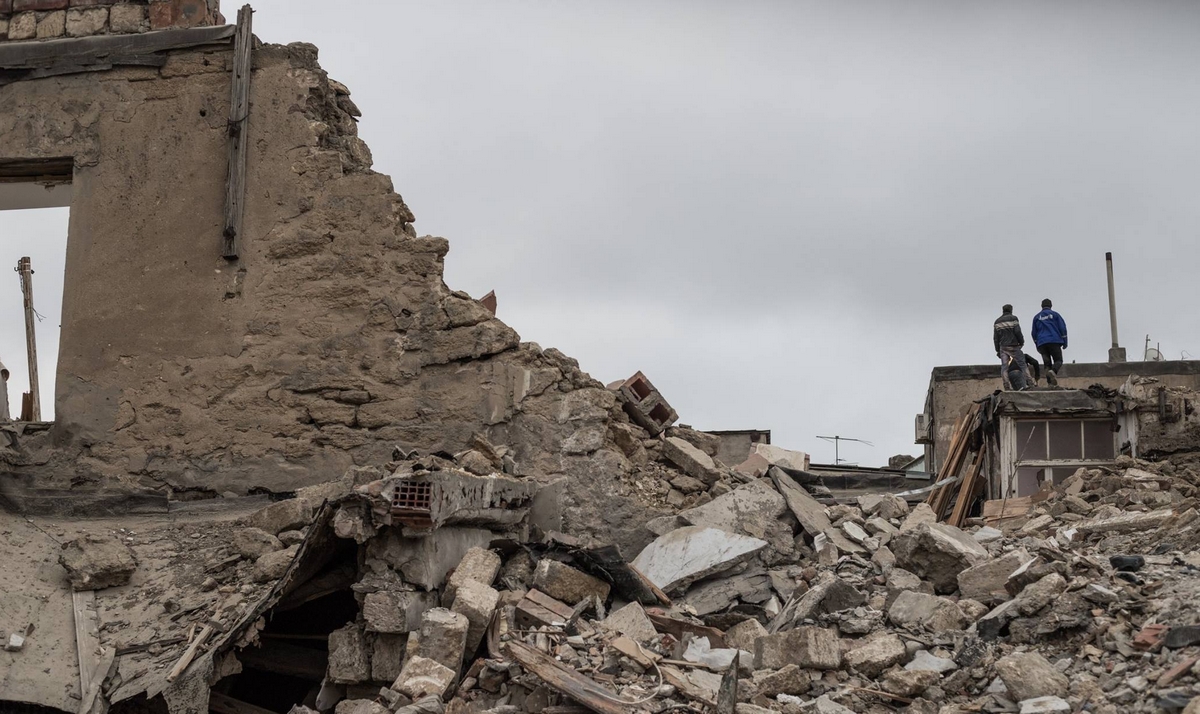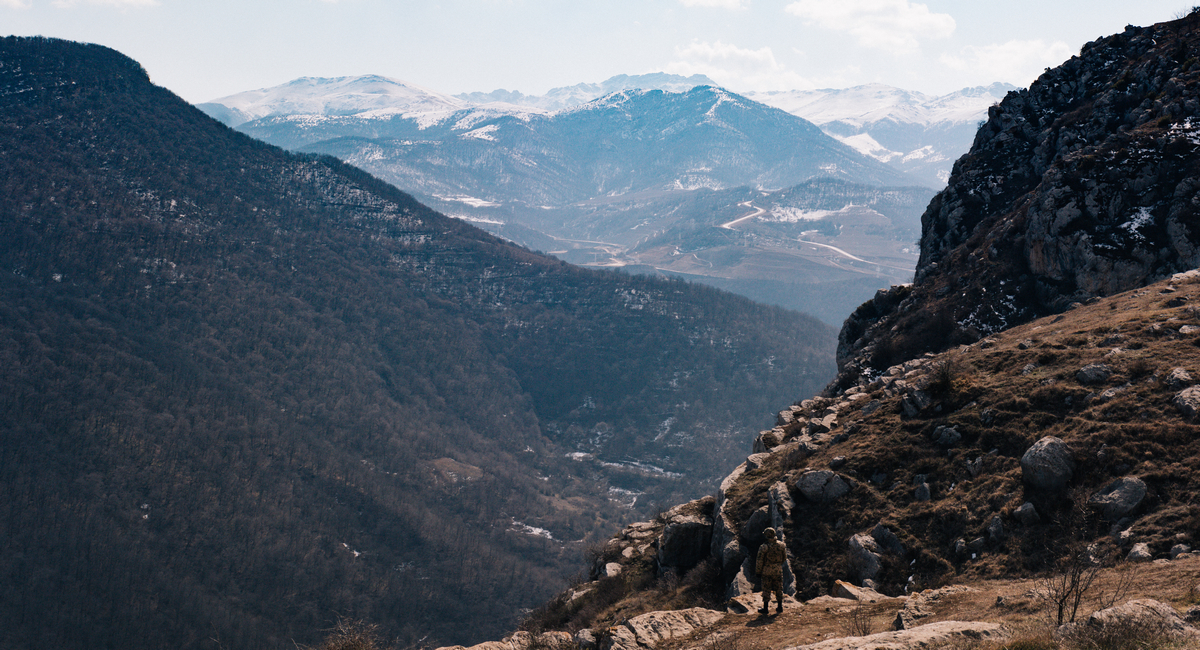Who can lead Armenia and Azerbaijan to peace if the Minsk group fails?
Who will replace the OSCE Minsk Group?
The mediating format of the OSCE Minsk Group, formed after the first Karabakh war in the early 1990s, today is on the verge of collapse.
In this format, Russia, the United States, and France worked as a team for a long time. However, the work of the group stalled for a long time due to Russia’s geopolitical confrontation with the West.
However, this did not create a peacekeeping vacuum, because the European Union has intensified efforts to reconcile Armenia with Azerbaijan.
In turn, this bewildered the Russian leadership, which had assumed the role of a key mediator in the Armenian-Azerbaijani conflict.
Geopolitical enmity could give rise to competition between Russia and the West for the role of the “godfather” of a future peace treaty.
The end of the Minsk Group?
The OSCE Minsk Group found itself “in a state of death” after the war that changed the region in the fall of 2020.
Since then, Armenia has been pushing for its “revival”. But Azerbaijan doesn’t even want to hear about it. According to Baku, the conflict is over and there is nothing to regulate.
Azerbaijani President Ilham Aliyev, speaking on April 22 at the fifth Congress of World Azerbaijanis, announced the actual dissolution of this format “after the events that unfolded between Russia and Ukraine”.
On the same day, Prime Minister of Armenia Nikol Pashinyan disagreed with Aliyev. During the opening of the government meeting, he called the statements about the dissolution of the OSCE Minsk Group “unfounded”.
In Armenia, at the suggestion of the authorities, a complex and emotional discussion unfolded around this topic.
- Karabakh status – future prospects and possible options. A view from Baku
- Closed railway of my childhood and the Armenian-Azerbaijani conflict
- Op-ed: What would life be like in Azerbaijan and the region without the Karabakh conflict
Many experts say that “the abolition of the Minsk format may cloud Karabakh’s prospects for recognition of independence” since it was through the Minsk Group that the unrecognized Nagorno-Karabakh Republic conveyed its voice to the international community.
On April 18, Pashinyan was on a visit to Russia. In the previous days, the Russian, French and American co-chairs of the OSCE Minsk Group visited Armenia.
This inspired some optimism in Yerevan. Pashinyan then stressed that “even in the context of the events in Ukraine, the co-chairs are working, making visits to the region and fixing their obligations at the political level to promote the Karabakh settlement”.
Armenia will continue to insist on maintaining the format of the Minsk Group, said Olesya Vartanyan, an analyst at the International Crisis Group.
Firstly, this is the only international mechanism for direct communication between the Karabakh authorities and the co-chairs.
The second argument is that “within the framework of the Minsk process, the importance of the subject of Karabakh and the recognition of its claims to self-determination were emphasized”, Vartanyan said in an interview with JAMnews.
Yet, it seems that it will not be possible to revive the Minsk format in its previous form.
At a press conference, following talks with his Armenian counterpart in Moscow on April 7, Russian Foreign Minister Sergei Lavrov accused France and the United States of effectively ‘canceling’ the Minsk Group.
A few days later, Moscow changed the status of its co-chair. Igor Khovaev has become the special representative of the Russian Foreign Ministry for promoting the normalization of relations between Armenia and Azerbaijan.
The Russian Foreign Ministry also actively joined the discussion on the basis of the basic principles put forward by Azerbaijan and Yerevan’s constructive reaction to them.
Fragmentation of the peace process, or reformulation of the Minsk Group?
Washington and Paris on the one hand, and Moscow on the other, have not officially renounced their peacekeeping obligations. However, they show no interest in cooperation.
At a briefing on April 21, Special Representative of the Russian Foreign Ministry Maria Zakharova accused Brussels of “shamelessly trying to appropriate the subject of the well-known Russian-Azerbaijani-Armenian agreements at the highest level and the agenda proposed last year by the co-chairs of the OSCE Minsk Group”.
To raise the question of resuming the work of the OSCE Minsk Group in such categoric terms, according to Olesya Vartanyan, is counterproductive – this will almost certainly lead to the termination of its existence.
“This is understood by all officials and diplomats in the region and abroad, which is why no one had spoken publicly about this until recently.
The recent escalation in Nagorno-Karabakh was the first time since the 2020 war that the co-chairs did not issue a joint statement. Instead, there were comments and appeals. In my opinion, this shows the fragility of the current situation”, says Olesya Vartanyan.
The peace process between Armenia and Azerbaijan is now becoming fragmented, says British political scientist Lawrence Broers, director of the Caucasus program at the British Conciliation Resources organization.
“In this situation, individual geopolitical players will take responsibility for individual issues.
● Russia has a monopoly on the issue of security because its peacekeepers are in Karabakh.
● The Minsk Group will be responsible for the issue of the status of Karabakh, as only the Minsk Group has the mandate to negotiate on this topic.
● The European Union acts as a custodian of the peace process between the two states, Armenia and Azerbaijan, especially on technical and economic issues”, Lawrence Broers told JAMnews.
Better than nothing
“What the European mediators are doing now is trying to keep the fragile peace between Armenia and Azerbaijan and in Nagorno-Karabakh itself in order to avoid direct military confrontation”, Olesya Vartanyan believes.
“Armenia is ready to participate in this. First of all, because it is necessary to negotiate in order to reduce the likelihood of a new war – especially in such a difficult period for the post-Soviet space.
Russia also has a direct interest here – first of all, it needs to avoid scattering its forces and resources in areas other than Ukraine”, says Olesya Vartanyan.
British journalist, and author of the book “The Black Garden” Thomas de Waal does not rule out the appearance of an heir to the Minsk Group. The negotiation process cannot remain in an ownerless state, he says.
Who will replace the Minsk Group in the Karabakh conflict?
“I think everyone is waiting for the appearance of a successor to this mechanism, maybe with the OSCE, maybe with another international organization. This is important because even if the Minsk mechanism no longer works, it has vast experience. 28 years of its work cannot just disappear”, de Waal told JAMnews.
One of the difficult questions is how to bring together disparate peace process initiatives when they are proposed by antagonistic geopolitical parties.
There is also the risk of projecting the contradictions of these centers onto the Karabakh settlement.
“This is a very big risk, the situation is sliding back to the 1990s when various geopolitical players offered competing peace initiatives to the parties of the conflict.
Then Russia, Iran, and the Conference on Security and Cooperation in Europe (now the OSCE) offered their own options for resolving the conflict. This is a very deplorable process and, given the war in Ukraine, causes great concern”, Broers said.
Thomas de Waal believes that the emergence of competition between the initiatives of Russia and the West on Karabakh in the current situation is quite natural:
“For example, Baku and Yerevan can agree in Brussels on unblocking communications from Zangelan to Nakhichevan through the Syunik region of Armenia. But this does not take into account the presence of Russian border guards there, as agreed by the tripartite statement of November 9, 2020.
Therefore, after some time they will have to negotiate separately with Moscow.
It turns out that Baku and Yerevan have to negotiate between Brussels and Moscow. It’s not an ideal situation, but it’s better than nothing”.
Will Russia retain its leadership?
The active involvement of Western mediators does not mean that they want to challenge the leading role of Russia in the process of settling the Karabakh conflict, Olesya Vartanyan believes. “In the West, no one challenges the Kremlin and no one is willing to create artificial problems for Moscow in the Karabakh situation. They will try to find opportunities for coordination and possible cooperation with Moscow there”, she says.
Lawrence Broers is also relatively optimistic about the “competition” between Russia and the West:
“The Karabakh conflict has always been distinguished by a low risk of geopolitical struggle since the parties to the conflict do not seek to join the EU or NATO. Such triggers of geopolitical competition, as in the case of Georgia or Ukraine, did not exist here. Let’s hope they don’t show up.
In addition, the West will not be able to achieve absolute dominance in the settlement process, since the South Caucasus is the periphery of its influence”.
However, Broers refers to an additional risk of Russia possibly trying to maintain control over the situation: “If it cannot impose its will on the parties to the conflict, it may interfere with the initiatives of other external actors”.
In a statement issued by the leaders of Armenia and Russia, Nikol Pashinyan and Vladimir Putin, following their meeting in Moscow on April 19, there are references to the importance of the experience of the OSCE Minsk Group.
“Moscow may begin to position itself as a guarantor of the Minsk process, which, from its point of view, the United States and France have renounced. But it is doubtful that Moscow will succeed”, says Lawrence Broers.
Trajectories is a media project that tells stories of people whose lives have been impacted by conflicts in the South Caucasus. We work with authors and editors from across the South Caucasus and do not support any one side in any conflict. The publications on this page are solely the responsibility of the authors. In the majority of cases, toponyms are those used in the author’s society. The project is implemented by GoGroup Media and International Alert and is funded by the European Union























